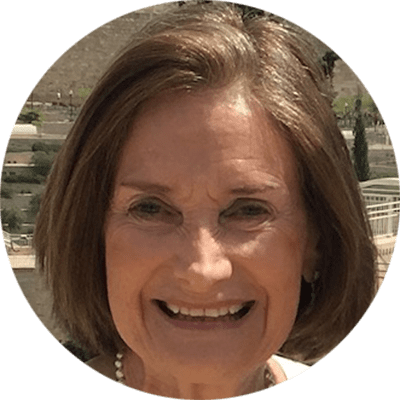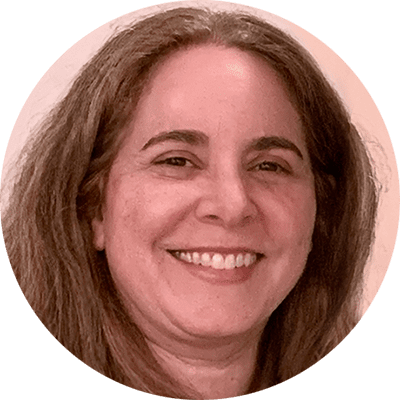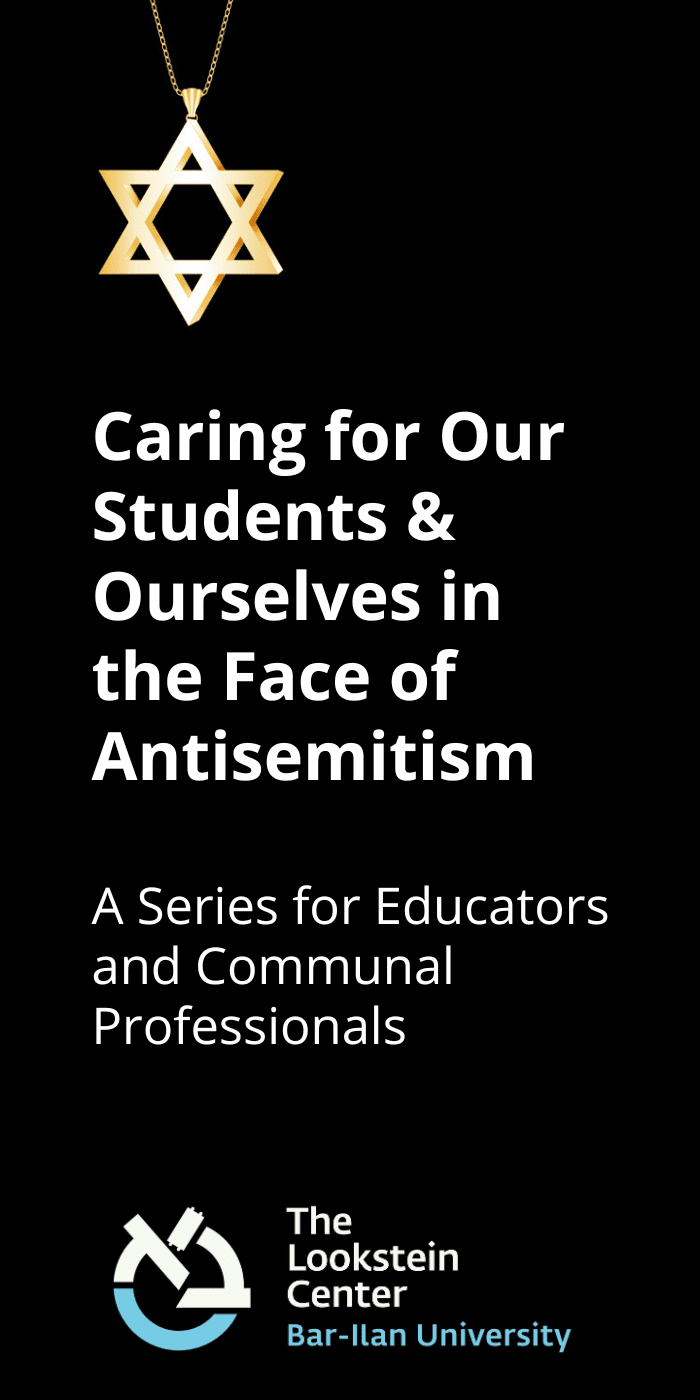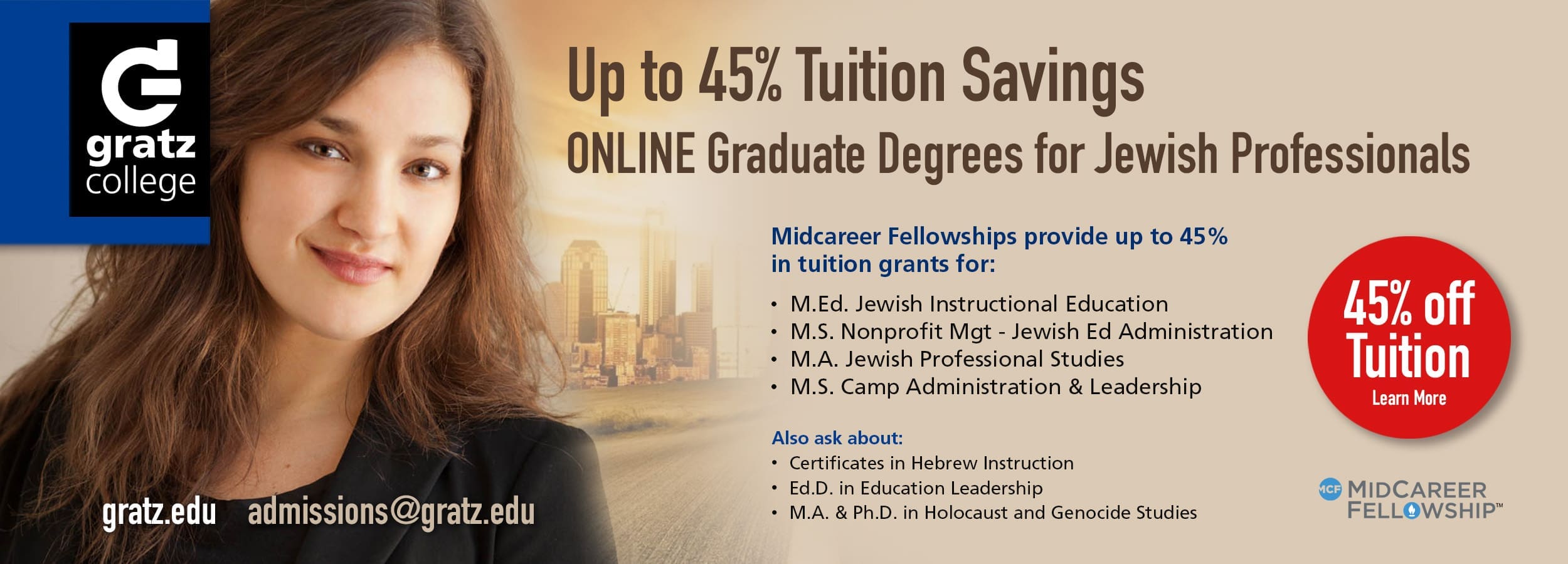Job Satisfaction: Models for Maximizing Teacher Retention

Rochelle Moche is a Program Consultant for the Jewish New Teacher Project, where she serves as a mentor, liaison to administrators, on the Development Team, and assists with special projects. Rochelle worked in Special Education for the NYC Department of Education and was an Adjunct Professor at the Azrieli Graduate School/Yeshiva University. She also was one of the founders of Ben Porat Yosef day school (NJ).



Nina Bruder is the Executive Director of Jewish New Teacher Project. Nina also teaches graduate students in the dual degree program of the Wagner School and Jewish Studies at NYU. She has published in multiple Jewish educational publications. A Wexner Graduate Fellows alumna, Nina has a BA from Brandeis, a Masters from the Harvard Kennedy School, and studied for two years at Pardes Institute for Jewish Studies.
Recruiting and retaining Jewish day school educators has always been a tremendous challenge, especially in smaller Jewish communities. COVID compounded this challenge, creating a national teacher shortage crisis in all communities. Increasing pay and benefits would go a long way toward attracting and retaining teachers. In addition, providing positive work environments and support contribute to keeping teachers fulfilled professionally, increasing their commitment to staying in the field long-term.
As is true in every profession, Jewish day school teachers want to feel successful at their jobs. This requires teachers to have the knowledge and skills to be effective and to be able to see the impact of their work. It further requires that they receive recognition and respect. We can say that the “formula” for feeling successful in their jobs = knowledge + skills + impact + recognition.
Practically, what can Jewish day schools and communities do to ensure that teachers feel successful, fulfilled, and committed?
1. Invest in teacher support and growth
New teachers are the most vulnerable to feeling unsuccessful in their roles. Pre-service training alone cannot adequately prepare new teachers for the intensive daily demands of their new jobs. Some Jewish day school teachers don’t even have the benefit of a degree in education or any kind of pre-service teacher training. Many teachers are unprepared and quickly become overwhelmed…and student learning suffers as a result.
All teachers want to grow as professionals, including veterans. Being stagnant leads to lower levels of job satisfaction, which leads to greater turnover. Studies have shown that employees across all industry sectors who feel their professional growth and careers have stagnated are 12 times more likely to leave their jobs.
What can schools do to promote teacher growth and, thereby, job satisfaction? When it comes to new teachers, schools can invest resources and time to provide intensive mentoring and coaching that increases the teachers’ level of skills and effectiveness quickly, so that they feel confident in their abilities and performance. For all teachers, schools can provide high-quality, ongoing professional development—not just “one and done” experiences. Additionally, teachers and school leaders can identify external resources to enhance teacher knowledge, skills, and strategies.
Another effective strategy for investing in teacher growth is creating a culture of collaboration, in which teachers learn from each other. This can include sharing materials and ideas through professional learning communities (PLCs) or setting up teacher rooms created around grades or subject matters where collaboration can naturally occur. Supportive, job-embedded feedback is another crucial component to growth, whether it’s from peers, department chairs, or division principals. Hand-in-hand with feedback is the communication of performance standards and accountability. When teachers know and understand expectations, when they receive consistent feedback, when they are mentored and supported and have professional growth opportunities, they will be able to grow and expand professionally, resulting in feelings of success.
These types of investments help teachers feel fulfilled: they build toolkits and strategies, enhance levels of confidence, and heighten feelings of professionalism. In turn, teachers become better at their jobs; they are better time managers, better curriculum builders, and better classroom managers.
At the end of the day, any way that teachers grow as professionals will positively impact students, which is why it is worth it for schools—administrators, lay leadership, parents—to invest in teacher growth.
2. Culture of autonomy and resilience
In many ways, teaching is a fairly solitary profession. For much of the day, teachers are isolated within their own classrooms, alone with their students. You might think this would lead to teachers feeling autonomous because they are in charge, but often, teachers—especially new teachers—actually feel overwhelmed by all of the decisions they have to make on a daily basis: what behaviors to respond to, whom to call on, for how long to take questions, how much time to spend on a topic, what and when to assess, etc. Working in isolation, they don’t have the benefit of seeing successful teachers teach. They also may take longer to develop a professional language, which provides an understanding of which instructional practices work and why, and which are worthy of replication. Without opportunities for collaboration and learning from others, teachers can feel isolated, overwhelmed, and unsuccessful.
We posit that gaining the skills, knowledge, and practice that lead to confidence and autonomy in the classroom leads to feelings of professional success and mastery. Schools can create a culture in which novice teachers have opportunities to observe master teachers. A culture of meaningful feedback from administrators, students, parents, and even peers can also help teachers develop the skills that lead to competency and success in running a classroom, and thus to feelings of autonomy.
In addition, coaching or mentoring that maximizes teacher decision-making skills and helps teachers develop a professional language can go a long way toward fostering a teacher’s autonomy. For example, JNTP’s mentoring methodology encourages teachers to decide the area in which they would like to grow, or the goals they would like to set, based on observation data, feedback, and reflection. When teachers know that they have the locus of control, it enables them to make decisions and to feel empowered and autonomous.
COVID has certainly taught us about the importance of resilience. Teachers were expected to learn new skills overnight; suddenly change curriculum and the entire way they taught—repeatedly; live with tremendous levels of uncertainty and fear; and put their students first…all while dealing with challenges in their personal lives. The more resilient teachers were more successful at weathering the COVID storm.
But even beyond COVID, teaching is a dynamic, ever-changing landscape. Everyone in the classroom—students and teachers—brings their individual experience to the room every day, which means every day the classroom is different. School leadership can change and each new administration introduces its own ideas about culture, curriculum, and expectations. One of the most important lessons new teachers need to learn is that one “bad” (read: challenging, difficult) lesson, one “bad” class, one “bad” day doesn’t mean all days will be “bad;” there is always an opportunity to grow and improve. It can be said that “rolling with the punches” is a critical teaching skill. Learning how to be resilient in the face of daily changes and challenges provides a buffer against the “bad” days and leads to teachers feeling effective, fulfilled, and committed.
A collaborative school culture that emphasizes positive administrator/teacher and peer relationships can promote teacher resilience. So, too, can the focus on teachers setting small, attainable goals with frequent feedback on progress. Giving new teachers lighter and more manageable workloads goes a long way towards setting them up for success. Flexible scheduling helps build teacher resilience by allowing teachers to take care of themselves and their families. This could include more personal days and mental health time off. It could also include on-site childcare, so that teachers with young children can manage their work and family lives more easily.
3. Opportunities for career growth
Some teachers ultimately want to become administrators; others don’t. Certainly, not everyone can. Providing opportunities for recognition, reward, and professional growth, while keeping teachers in the classroom, can increase levels of job satisfaction and keep outstanding teachers where they have the most impact—teaching our children.
Following are some ideas for how teachers can be given status without moving into administration:
- Lead Professional Learning Communities (PLCs) within the school or actively participate in one, which provides opportunity to shape curriculum, resolve challenges collaboratively, etc.
- Facilitate professional development for colleagues or at conferences
- Train as a mentor, and mentor colleagues in school
- Take on designated teacher leader roles, like Fire Marshall
- Lead or participate in extracurricular activities in a school—clubs, trips, hesed initiatives, special events at school (Yom HaShoa, Yom HaZikaron, Yom HaAtzmaut, Yom Yerushalayim), etc.
- Serve on faculty committees
- Facilitate parent or community education
Schools can encourage teachers to reach beyond the four walls of their school and support teacher interests to create new school programs/initiatives. And, certainly, schools can use PR and marketing to raise the status of their teachers by publicizing teachers’ achievements in the school and in the wider community.
Conclusion
Teachers want to feel effective and successful, that they are appreciated and recognized, that they are continually growing professionally. They benefit from feeling like professionals, and being respected and treated as professionals, both within and outside of the school building. Success breeds success. Everyone benefits when teachers view careers in Jewish day school education as valuable, significant, and meaningful. Engendering job satisfaction inspires a stronger commitment to staying in the field long-term.



Rochelle Moche is a Program Consultant for Jewish New Teacher Project, where she serves as a mentor, liaison to administrators, on the Development Team, and assists with special projects. Rochelle worked in Special Education for the NYC Department of Education and was an Adjunct Professor at the Azrieli Graduate School/Yeshiva University. She also was one of the founders of Ben Porat Yosef day school (NJ).



Nina Bruder is the Executive Director of Jewish New Teacher Project. Nina also teaches graduate students in the dual degree program of the Wagner School and Jewish Studies at NYU. Her work has been published in multiple Jewish educational publications. A Wexner Graduate Fellows alumna, Nina has a BA from Brandeis, a Masters from the Harvard Kennedy School, and studied for two years at Pardes Institute for Jewish Studies.
Reach 10,000 Jewish educational professionals. Advertise in the upcoming issue of Jewish Educational Leadership.





